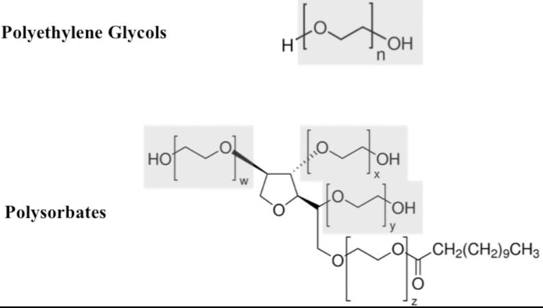1/OK so there *may* be new reports of allergy to #COVID19 vaccines but many other things (e.g., vasovagal syncope) can be misdiagnosed as allergy so we need more clinical details from the UK
cnn.com/2020/12/09/hea…
cnn.com/2020/12/09/hea…
2/ BUT, it is not surprising that allergic reactions might be identified during massive vaccination but not clinical trials because #allergy to vaccines are exceedingly rare (1 per million). In the @US_FDA report, AEs within 30 min for vaccine vs placebo were similar: 

3/Most vaccine allergies come from the excipients and allergists can do skin testing to the vaccine and its excipients (often facilitating safe and totally unremarkable vaccination). Excipients are often shared for many approved vaccines: cdc.gov/vaccines/pubs/…
4/The excipient in the Pfizer vaccine is PEG2000. The main #COVID19 vaccines we know about use either PEG or polysorbates. As #allergists, we will identify protocols for skin testing to these agents should this be necessary but we expect this will be RARE. 

5/Allergy to PEG appears also to be exceedingly rare; reports of PEG3350 anaphylaxis to the FDA were from <10 per year since 2005 @vumc_cdsi_rsch
ncbi.nlm.nih.gov/pmc/articles/P…
ncbi.nlm.nih.gov/pmc/articles/P…
6/While we wait to learn more about these events, it is important to note that allergy is an antigen-specific process. What does that mean? Severe allergy to peanut or penicillin (or whatever) does not mean you will have an allergy to a vaccine (containing PEG).
7/ So, let's prepare ourselves for the arm swelling and fever that we will get (in return for immunity and our lives back!). Allergy may happen in rare cases, but I fully anticipate finding a safe #COVID19 vaccine, even for the rare allergic patient./
#MedEd #medtwitter @AItwitter @EricMacyMD @AllergyKidsDoc @ericashenoy @DrAnneEllis #AIMedEd @KhouryMD @RWalensky @FIT_AAAAI_org @CarlosdelRio7 @PaigeWickner @PaulSaxMD @drjessigold
@DrCorinneHappel @CalderwoodMD @mmPharmD @mghaifellows @MGHAllergy @MonganInstitute @PBiddinger @AliRaja_MD @LondonAllergy
• • •
Missing some Tweet in this thread? You can try to
force a refresh












